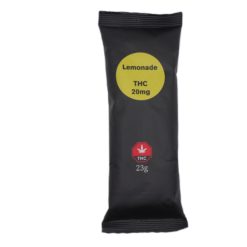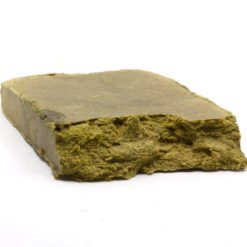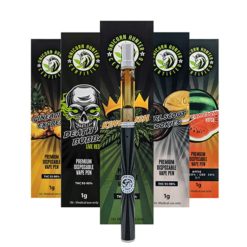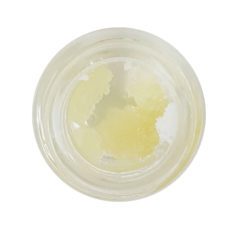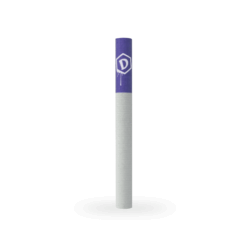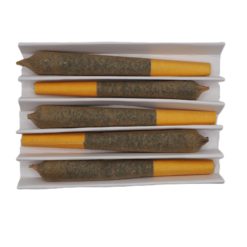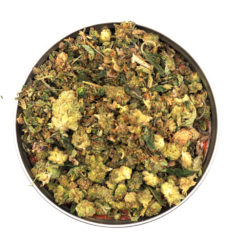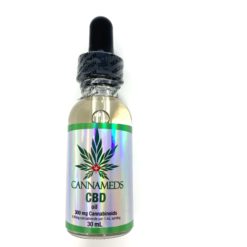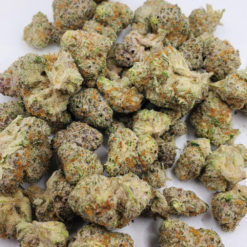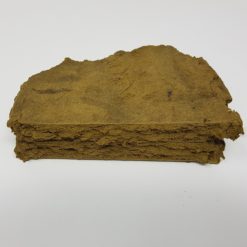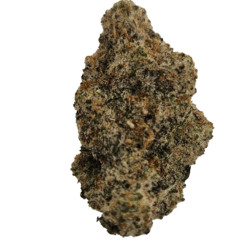If you’re an avid cannabis enthusiast, you’ll likely be familiar with what it’s like to have a case of the munchies. After having a smoke, it usually doesn’t take long before cravings for tacos and other delicious foods start to creep up on you.
After the binge, you might think it will make you gain weight to have eaten so much, but what if there was some scientific evidence that could hint towards that maybe not being true?
According to a study at Indiana University conducted by Dr. Tom Clark, the US states where medicinal cannabis use is legal have had a 2-6% drop in obesity rates state-wide since legalization in adults 40 and older.
Dr. Clark mentions the following in his study, “Because Cannabis use reduces obesity rates, and cannabinoids have potent anti-inflammatory properties, Cannabis may decrease rates of DM. Two studies to date in the U.S. have compared rates of DM in Cannabis users and non-users, and both detected significantly decreased rates of DM in Cannabis users that hold up after adjustment for confounding variables [76,78]. Rajavashisth et al. [76] performed a multivariate model based on the Centers for Disease Control’s National Health and Nutrition Examination Survey (NHANES III), using data sets from 1988 to 1994. This study included 10,896 adults and robust multivariate analysis adjusting for sociodemographic variables, laboratory values, an inflammatory marker, and comorbidity showed that Cannabis users had a large and significant reduction in rates of DM (fully adjusted OR 0.36, 95% CI 0.24 – 0.55, P < 0.0001). This effect was driven primarily by differences in the 41- 59-year-old age group.”
How Is That Possible?
THC, CBD And The Endocannabinoid System
The endocannabinoid system is the system in our bodies that’s responsible for almost all of our cellular and systemic signalling through all organs and peripheral systems.
The CB1 receptor is primarily in the brain and gut and is responsible for all the central functions of our body including mood, appetite, sleep, motivation, and cognitive and digestive functions.
The CB2 receptor is in the peripheral nervous system, mostly across our immune system and motor control systems in our limbs and muscles.
THC is what interacts with the CB1 receptor by working as a receptor agonist, meaning it stimulates and activates the CB1 receptors that stimulate things like hunger and euphoric feelings.
CBD is much different than that. It doesn’t bind to any receptors at all. What CBD does is change the function of CB2 receptors, altering the function of the nervous system and inflammatory pathways the receptor controls across the body.
How does this relate to obesity?
Medical Cannabis For Obesity
The unsatisfying truth is science is still working on the answers as to exactly why using medical cannabis can have an effect on obesity.
THC overstimulates CB1, then downregulates it for several hours as the THC works its way out of the system.
That downregulation increases the metabolism, making it easier to burn fat. A way to further boost the effects of THC on the metabolism can be to combine it with Omega-3 supplements. THC is fat-soluble, so having healthy fats with it will make it more bioavailable.
The specifics on a protocol have yet to be tested fully, so data are still limited, but knowing this much is a promising start.
As for CBD, it might be useful in helping regulate the inflammation naturally found in obese individuals, and reduce stress and anxiety by helping with receptor signalling and nerve function. Hardly a dismissable benefit for overall health.
How To See If This Works For You
The first question to answer is, ‘is cannabis use safe?’
As long as you meet local legal age requirements and understand how to use it safely, generally speaking, yes. But it’s important to go with how you feel as opposed to a recommendation. No two endocannabinoid systems are exactly the same so it’s important to take this into account and stick to what feels right.
Knowing no set protocols really exist as of yet, the best thing we can recommend is that if you are someone battling a weight issue, try either smoking cannabis flower that’s a good ratio of THC/CBD (1:1, 2:1, 1:2) or combines different extracts to find a balance that works best for you.
THC is psychoactive at any dose above 2.5mg for most people, while CBD is not. Try starting fairly low at first in terms of dosages for THC that won’t interfere with your daily routine, then gradually dial it up over time. CBD can be started at 30-60mg.
There are few studies so seeing results from this will vary from person to person therefore remember to be patient and keep track of results and progress over time while also making healthy diet and exercise choices.
Summary And What To Try
As mentioned, the science is still out on exactly how cannabis can help manage and even treat obesity, but early results are promising for this simple treatment that may help.
For recommendations, we have capsules and tinctures that could help get more CBD into your system more easily if you prefer cannabis flower strains that are high THC and low CBD.
We hope this information helps you on your health journey.
References
https://pubmed.ncbi.nlm.nih.gov/32194509/ Bielawiec P, Harasim-Symbor E, Chabowski A. Phytocannabinoids: Useful Drugs for the Treatment of Obesity? Special Focus on Cannabidiol. Front Endocrinol (Lausanne). 2020 Mar 4;11:114. doi: 10.3389/fendo.2020.00114. PMID: 32194509; PMCID: PMC7064444.
https://pubmed.ncbi.nlm.nih.gov/30702972/ Vázquez-Bourgon J, Setién-Suero E, Pilar-Cuéllar F, Romero-Jiménez R, Ortiz-García de la Foz V, Castro E, Crespo-Facorro B. Effect of cannabis on weight and metabolism in first-episode non-affective psychosis: Results from a three-year longitudinal study. J Psychopharmacol. 2019 Mar;33(3):284-294. doi: 10.1177/0269881118822173. Epub 2019 Jan 31. PMID: 30702972.
https://pubmed.ncbi.nlm.nih.gov/23410498/ Le Foll B, Trigo JM, Sharkey KA, Le Strat Y. Cannabis and Δ9-tetrahydrocannabinol (THC) for weight loss? Med Hypotheses. 2013 May;80(5):564-7. doi: 10.1016/j.mehy.2013.01.019. Epub 2013 Feb 11. PMID: 23410498.
Cannabis use is associated with a substantial reduction in premature deaths in the United States.
https://pubmed.ncbi.nlm.nih.gov/26271952/ Di Marzo V, Piscitelli F. The Endocannabinoid System and its Modulation by Phytocannabinoids. Neurotherapeutics. 2015 Oct;12(4):692-8. doi: 10.1007/s13311-015-0374-6. PMID: 26271952; PMCID: PMC4604172.
Clark, Thomas. Cannabis Use Is Associated with a Substantial Reduction in Premature Deaths in the United States. Indiana University South Bend, 11 Aug. 2017. https://scholarworks.iu.edu/dspace/bitstream/handle/2022/21632/Clark_Cannabis_and_Premature_Death%207_26%20%2810%29.pdf?sequence=6&isAllowed=y
